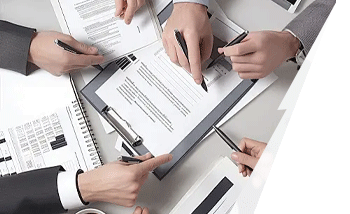China Travel Guide for Disabled Visitors: Accessibility, Culture & Planning
Traveling to China as a disabled tourist can be an amazing experience, but it requires a bit of extra planning. From legal requirements and accessible facilities to language and cultural differences, here’s a practical guide to make your trip smooth and enjoyable.
1. Legal Requirements & Policies
- Visa & Entry:
Make sure you have a valid Chinese tourist visa (L visa). Some travelers with disabilities may need to provide health certificates or medical documents—check with the Chinese embassy or consulate in advance. - Accessibility Laws:
China’s Law on the Protection of Disabled Persons guarantees certain accessibility rights, though implementation varies by region. - Bringing Assistive Devices:
If you bring a wheelchair, hearing aid, or guide dog, check customs regulations. Guide dogs need quarantine certificates and permits.
2. Accessible Facilities & Transportation
- City Accessibility:
Major cities like Beijing, Shanghai, Guangzhou, and Shenzhen have accessible routes, elevators, and restrooms at main tourist spots, airports, and hotels. Examples: The Forbidden City, Great Wall (Badaling), Shanghai Bund.
Smaller cities or rural areas may lack proper ramps or wide pathways, so always confirm in advance. - Public Transport:
- Flights: Airports like Beijing Capital and Shanghai Pudong offer wheelchair services, priority boarding, and assistance—contact airlines 48+ hours in advance.
- High-Speed Trains: Some trains (like G-series) have accessible cars and wheelchair spots, but book ahead. Staff may not speak English, so bring a Chinese note explaining your needs.
- Subways: Cities like Beijing and Shanghai have elevators and braille signs, but rush hours can be crowded. Not all stations are fully accessible.
- Taxis & Ride-Hailing: Regular taxis usually aren’t wheelchair-friendly. Use apps like DiDi and request a large vehicle with accessibility options.
- Buses: Some cities offer low-floor accessible buses, but coverage is limited. Check routes in advance.
- Private Transport:
Renting accessible vehicles or arranging tours with specialized agencies is recommended.
3. Accommodation
- Accessible Hotels:
International chains (Marriott, Hilton, InterContinental) and high-end domestic hotels often have accessible rooms with wide doors, grab bars, and low fixtures.
Budget hotels and homestays may have limited facilities—always confirm in advance. - Booking Tips:
Request specific needs like roll-in showers, emergency call devices, or rooms near elevators. Choosing a hotel near city centers or attractions reduces travel hassle.
4. Language & Communication
- Language Barriers:
English is limited outside main tourist areas; Mandarin is the primary language. For disability-related requests, use translation apps (Google Translate, Baidu Translate) or Chinese phrase cards. - Guide Dogs & Devices:
Bring bilingual documentation explaining your guide dog or assistive equipment for customs or hotel inquiries. - Hearing Impairments:
Have paper, pen, or text-based apps ready for communication.
5. Attractions & Activities
- Popular Sites:
Famous attractions like the Forbidden City, Terracotta Warriors, and Shanghai Disneyland usually have some accessibility, but book wheelchairs or guides in advance. - Natural Attractions:
Scenic spots like Zhangjiajie or Huangshan may be challenging due to steep terrain—choose suitable routes or avoid difficult areas. - Museums & Cultural Sites:
Some provide braille guides or audio tours—check ahead. - Itinerary Planning:
Allow extra rest time; disabled travelers may need more time for mobility and breaks. Inform your tour operator about your needs.
6. Medical & Emergency
- Medical Preparation:
Carry sufficient medication and English prescriptions for customs or emergencies. Know local hospitals with international departments (e.g., Peking Union Medical College Hospital, Huashan Hospital in Shanghai). - Insurance:
Choose travel insurance covering medical evacuation and disability-related needs. - Emergency Contacts:
China’s emergency numbers: Police 110, Ambulance 120, Fire 119. Save nearby hospitals and your embassy contact.
7. Cultural & Social Etiquette
- Cultural Differences:
Chinese people are generally friendly toward disabled travelers. Curious stares or questions are usually harmless. - Etiquette:
Say “thank you” when accepting help. Politely refuse assistance if needed using gestures or simple words.
8. Practical Tips
- Planning:
Contact the China Disabled Persons’ Federation (CDPF) or local tourism offices for accessible travel info. Use Trip.com, Ctrip, or international accessible travel agencies like Wheel the World. - Assistive Tools:
Carry portable ramps or a lightweight wheelchair. Download offline maps (e.g., Amap/Gaode) with accessible spots marked. - Season & Weather:
Avoid peak travel periods (National Day, Chinese New Year) to reduce crowding. Prepare clothing suitable for northern winter cold or southern summer humidity.
9. Resources & Contacts
- China Disabled Persons’ Federation (CDPF): www.cdpf.org.cn
- Tourism Bureaus: www.cnta.gov.cn
- International Agencies: Accessible travel services like Wheel the World
- Embassies: Keep your country’s embassy contact in China handy.
10. Key Takeaways
- Communicate Early: Confirm accessibility needs with airlines, hotels, attractions, and tour agencies.
- Stay Flexible: Have backup plans for facilities or unexpected situations.
- Respect Local Culture: Understand regional differences in accessibility development.
- Prioritize Safety: Ensure medical and emergency support is always available.

